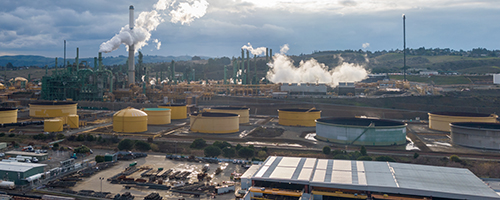|
|
|
|
|
|
|
|
|
|
|
|
Extreme Weather Is Driving Up Prices of Food Around the World
|
|
|
|
|
|
|
|
Today: Extreme weather is driving short-term surges in food prices; politicians from across the aisle want to boost efforts to recycle electronic waste and reclaim critical minerals; from soft wood to superwood.
|
|
|
|
|
|

|
|
Flood water in England. Potato prices in the U.K. jumped 22% in the 13 months to February 2024 after extreme rainfall. Photo: Getty Images
|
|
|
|
|
|
Welcome back: The price of staple foods are being hit by climate-related shocks, the WSJ's Joseph Hoppe reports.
Recent spikes in food prices of potatoes, rice, onions, lettuce and fruit have been linked to heat, drought and heavy rainfall conditions, according to a study led by the Barcelona Supercomputing Center, Spain.
Vegetable prices in California and Arizona rose 80% on year in November 2022 after extreme drought, while Ethiopian food prices rose 40% in March 2023 following a drought the year prior. Potato prices in the U.K. jumped 22% in the 13 months to February 2024 after extreme rainfall in the winter.
|
|
|
|
|
Content from our sponsor: Deloitte
|

|
|
California Climate Disclosure: New FAQs Can Help Companies Prepare
|
|
California Air Resources Board guidance highlights precise definitions, phased compliance, and transparency measures for climate disclosure, helping clarify reporting and assurance requirements. Read More
|
|
|
|
|
|
|
|
|
Legislators Embrace Technology Recycling to Compete With China
|
|
|
|

|
|
A refinery in southwest Germany extracts metals from electronic and industrial waste. Photo: patrick hertzog/AFP/Getty Images
|
|
|
|
|
|
The digital detritus of discarded laptops, phones and other electronics contain much-sought-after resources hidden in plain sight, WSJ Pro Sustainable Business's Clara Hudson reports.
Lawmakers at a congressional hearing last week pushed for improved recycling infrastructure to secure critical minerals, such as lithium, that power electric vehicles and smartphones.
The race is on to secure critical minerals in the U.S., in part to offset China’s dominance in the ownership and processing of these materials. The U.S. is also lagging behind China on renewable energy and electric vehicles, driven in part by critical minerals.
|
|
|
|
|
|
It’s Bulletproof, Fire-Resistant, Stronger Than Steel. It’s Superwood.
|
|
|
|

|
|
Samples of Superwood, which is made from tree species that are otherwise unusable for construction, such as poplar, at InventWood’s facility in Frederick, Md.
|
|
|
|
|
|
A Maryland startup is attempting to turn soft wood into something that is stronger than steel yet one-sixth the weight. The plan is to replace a good chunk of construction-grade steel and concrete with scrap wood that is otherwise unusable waste, the WSJ's Christopher Mims writes.
InventWood says its product, Superwood, could someday replace steel I-beams in the skeleton of a building, while being impact-resistant enough for bulletproof doors. It’s also fire resistant—the outside carbonizes in a way that protects the inside, and it won’t sag in a fire like steel.
To create the product, InventWood starts by cooking and treating the wood. It then compresses it, so a typical board becomes one-quarter as thick. The company says Superwood will go on sale for about the same price as high-end building facades, or tropical hardwood.
|
|
|
|
|
|
|
|
|
|
|
|
|
|
|
|
-
BP to sell U.S. onshore wind business to LS Power. (Dow Jones Newswires)
-
A look inside a lab making the advanced fuel to power growing U.S. nuclear energy ambitions. (AP)
-
Small modular reactors are gaining steam globally. Will any get built? (Canary Media)
-
Clean fuel startup Amogy raises $80 million to decarbonize shipping, power generation. (ESG Today)
-
EPA cutting workforce by 23%, closing research division. (Reuters)
-
As criticism mounts, can B Corp raise the bar? (Vogue Business)
-
EU budget plan would deal ‘devastating blow’ to nature. (Politico)
-
Learning to live in a world beset by wildfires. (FT)
-
Sustainability needs more focus on doing and less on reporting. (Dow Jones Risk Journal)
-
Coldplay, a viral kiss-cam moment—and a CEO’s resignation. (WSJ)
|
|
|
|
|
Correction: U.S. companies have quietly increased sustainability spending this year, according to research by EcoVadis. In Friday's newsletter, the sustainability ratings company's name was spelled incorrectly.
|
|
|
|
|
|
|
|
|
|
|
|
|
|
|
|